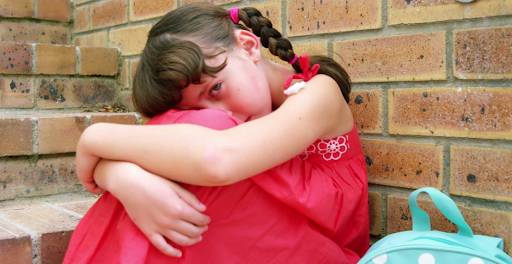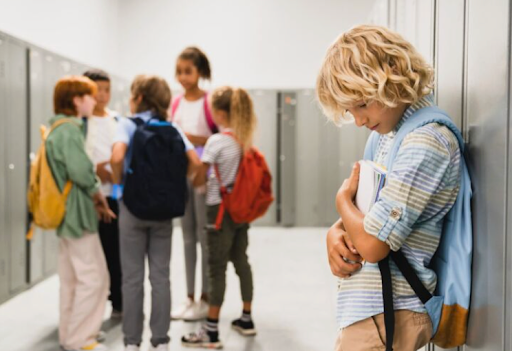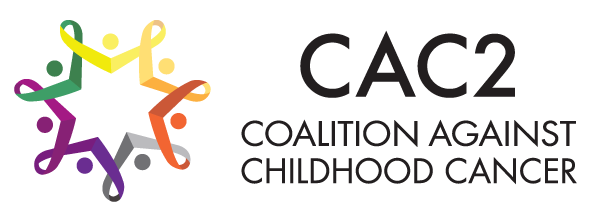By CAC2 Staffer Bethany Lieberman This is the second blog in a two-part series. This post addresses how childhood cancer affects the academic success of school-aged siblings. The first post addressed the needs of children impacted by an education interruption due to a rare disease, like childhood cancer.
Back-to-school shopping often comes with a great deal of excitement. You can almost feel it buzzing as you search the aisles for the perfect backpack. Selecting it captures the possibility of the school year and primes students to tackle new adventures.
But for the sibling of a child with cancer, that joy and sense of anticipation may be tarnished. The new backpack may already feel overloaded, filled with their invisible, yet heavy, load—the weight of fear, guilt, loneliness, and confusion that these students bring with them into the classroom.

How can we support siblings whose backpacks are so overloaded with big feelings that they struggle in school?
As the first step in building a safety net for siblings, parents, and educators should acknowledge the emotional and social hurdles they face. By offering empathy, trust, and practical support, the pediatric cancer diagnosis doesn’t end up stalling the siblings’ development or their sense of emotional well-being.
The Educational Toll Siblings Face
School often becomes an unexpectedly challenging place for children whose sibling is diagnosed with cancer. Their internal struggles and worries may surface. The weight of the diagnosis and treatment path may elicit any or all of the following behaviors in the classroom:
- Difficulty Focusing: Anxiety and constantly worrying about their ill sibling can impair focus, leading to noticeable declines in academic performance and attention difficulties.
- Multiple School Absences: Siblings may frequently miss school to visit their sibling in the hospital. Parents may also send brothers and sisters to stay with a family member while the ill child is in the hospital, or the risk of infection may necessitate staying home. Lost time can have long-term consequences for the siblings’ education.
- Emotional Overflow: When siblings carry stress and worry, it’s natural for that to show up in their behavior at school. Teachers might notice this pressure surfacing in different ways, such as unexpected tantrums, clinginess, or even new physical concerns, like frequent headaches.
- The Guilt of Normalcy: School is often the one place that feels like a refuge of normalcy and stability. Yet, siblings frequently wrestle with a profound sense of guilt—it’s hard to enjoy a game or celebrate a good grade while their brother or sister is suffering. This emotional tug-of-war can feel isolating, causing them to hide their true feelings from those around them.

How Parents and Educators Can Help Build Trust
The strongest support system comes from parents, caregivers, and teachers partnering to focus on two simple things: ensuring the child feels validated and maintaining their routine as consistently as possible.
For Parents: Find Moments That Matter
You cannot do everything, but you can take small, powerful steps to reassure your healthy child:
- Validate Big, Hard Feelings: Speak words like, “I know this is incredibly hard, and it’s okay to feel angry or sad.” By normalizing their emotions—even confusing ones like jealousy—you create a safe space for them to be upset and share their fears.
- Create Intentional Time: Carve out a small chunk of daily, uninterrupted, one-on-one time, whether in person or over the phone. Just 5-15 minutes of focused attention shows them, “You are seen, and you matter.”
- Protect Routine: Try your best to help brothers and sisters stick to their home-life routines and regular school, sports, and extracurricular activity schedules wherever possible. Sticking to regular routines and schedules brings a sense of comfort.
- Encourage Connection: Visiting, calling, or writing to their ill brother or sister helps siblings stay connected. The sibling relationship is a core part of the family unit. When that bond is protected, it reinforces the healthy sibling’s sense that the family will remain intact and strong in the long run.
For Educators: Provide Stability
Teachers and counselors are uniquely qualified to provide stability when a child’s home life shifts. When this happens, teachers recognize that a sibling’s school performance may naturally dip and know that any poor performance is almost always circumstantial, not a reflection of the student’s intelligence or ability. To create a supportive and stable academic environment, teachers can offer flexibility and understanding by:
- Provide Discreet Flexibility: When appropriate, extend deadlines, provide a quiet space to retreat during the school day, or a non-punitive approach to incomplete assignments.
- Act as a Trusted Sounding Board: Siblings should know that teachers and school counselors are safe people to talk to when they feel ready. Simply being available and listening without judgment is powerful for their overall adjustment to the incredible stress their family is facing.
- Collaborate with Compassion: Get information from the family on a “need-to-know” basis to understand their circumstances. Work with school nurses and counselors to identify signs of distress.
Juggling the Impossible
To all parents walking this unimaginable path: It’s natural to feel the weight of this journey, and one of the heaviest burdens is the struggle to balance the needs of all your children. If you feel guilty about the time you can’t spend with your other children, please be gentle with yourself—this is a common and valid feeling for every family in this situation.
The sheer logistics of treatment—the endless appointments, hospital stays, and intricate home care—create a reality where helping with homework or attending school events and other activities is often just impossible. This can strain even the most resilient parent’s ability to cope.
We also see the incredible strength of older teenage siblings who often step up. They sense the overwhelming stress you’re under and may choose to keep their own fears, anxieties, and needs quiet so as not to add to your load.
Remember, you are all doing the very best you can in an impossible situation. Your best is enough.
Finding Helpful Resources
No family should face this overwhelming experience alone. Support is available for both the patient and their siblings, family, and caregivers.
CAC2’s Childhood Cancer Hub’s Hope Portal serves as an essential starting point. It connects families, educators, and caregivers to a national network of resources, support programs, and invaluable toolkits—such as (1) the Pediatric Brain Tumor Foundation’s Education Tools, (2) the Children’s Cancer Partners of the Carolinas’ Insights and Tools for Parents/Caregivers and Educators, and (3) ASK Childhood Cancer Foundation’s Education Toolkits for Parents and Educators—that specifically address these challenges.
If you find your child is having a tough time or their emotional struggles persist, reaching out to a mental healthcare provider can be invaluable. It’s okay to ask for help; it ensures they have the resources they need to process this intense family experience.
A large community is ready to help you lighten the invisible burden your child carries.
Helpful Source Links
Supporting Siblings of Children with Cancer: A Need for Family–School Partnerships
When a Child Has Cancer – The Impact on Siblings and School Friends
How to Support Siblings Following a Cancer Diagnosis
Siblings of Children Diagnosed with Cancer: Being Faced with a Moral Dilemma
The Impact of a Child’s Cancer on Siblings
The Sibling Experience: Pediatric Families Coping With Childhood Cancer



